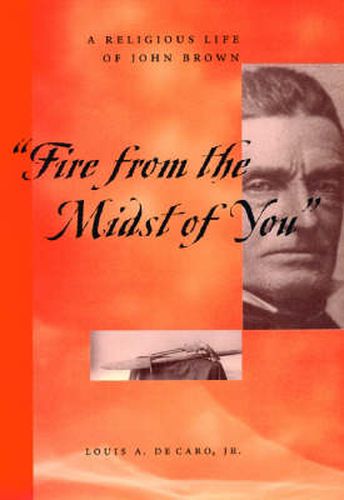Readings Newsletter
Become a Readings Member to make your shopping experience even easier.
Sign in or sign up for free!
You’re not far away from qualifying for FREE standard shipping within Australia
You’ve qualified for FREE standard shipping within Australia
The cart is loading…






John Brown is usually remembered as a terrorist whose unbridled hatred of slavery drove him to the ill-fated raid on Harper’s Ferry, Virginia, in 1859. Tried and executed for seizing the arsenal and attempting to spur a liberation movement among the slaves, Brown was the ultimate cause celebre for a country on the brink of civil war. Fire from the Midst of You situates Brown within the religious and social context of a nation steeped in racism, showing his roots in Puritan abolitionism. DeCaro explores Brown’s unusual family heritage as well as his business and personal losses, retracing his path to the Southern gallows. In contrast to the popular image of Brown as a violent fanatic, DeCaro contextualizes Brown’s actions, emphasizing the intensely religious nature of the antebellum US in which he lived. He articulates the nature of Brown’s radical faith and shows that, when viewed in the context of his times, he was not the religious fanatic that many have understood him to be. DeCaro calls Brown a Protestant saint - an imperfect believer seeking to realize his own perceived calling in divine providence.
$9.00 standard shipping within Australia
FREE standard shipping within Australia for orders over $100.00
Express & International shipping calculated at checkout
John Brown is usually remembered as a terrorist whose unbridled hatred of slavery drove him to the ill-fated raid on Harper’s Ferry, Virginia, in 1859. Tried and executed for seizing the arsenal and attempting to spur a liberation movement among the slaves, Brown was the ultimate cause celebre for a country on the brink of civil war. Fire from the Midst of You situates Brown within the religious and social context of a nation steeped in racism, showing his roots in Puritan abolitionism. DeCaro explores Brown’s unusual family heritage as well as his business and personal losses, retracing his path to the Southern gallows. In contrast to the popular image of Brown as a violent fanatic, DeCaro contextualizes Brown’s actions, emphasizing the intensely religious nature of the antebellum US in which he lived. He articulates the nature of Brown’s radical faith and shows that, when viewed in the context of his times, he was not the religious fanatic that many have understood him to be. DeCaro calls Brown a Protestant saint - an imperfect believer seeking to realize his own perceived calling in divine providence.